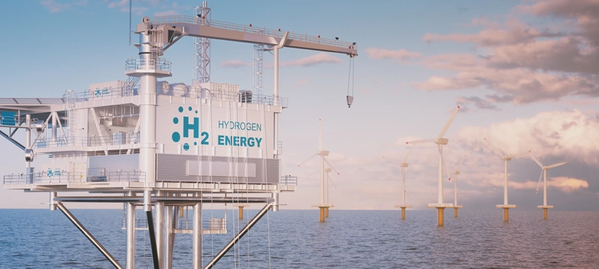
Danish engineering group Ramboll will investigate the feasibility of producing hydrogen offshore at a multi-gigawatt scale with NortH2 in the Dutch part of the North Sea.
The NortH2 consortium, consisting of Eneco, RWE, Equinor and Shell, in partnership with Gasunie, is investigating how all aspects of the hydrogen value chain – from production to transmission and storage – can be developed in coordination.
The ambition is to establish a multi-gigawatt wind farm in the North Sea connected to an onshore hydrogen facility from where the hydrogen will be distributed through the European hydrogen backbone to industrial clusters in the Netherlands and Northern Europe.
By 2040, the aim is to upscale to 10 GW of installed capacity combining onshore and offshore electrolysis. This would result in an annual production of up to 0.75 million tonnes of green hydrogen.
In addition to its plans for the onshore electrolysis plant, the consortium is investigating the feasibility of producing hydrogen offshore and has retained Ramboll to design and describe feasible concepts.
Milko Binza Moussirou, Senior Chief Project Manager at Ramboll said: "Projects using onshore rather than offshore electrolysers tend to be less expensive - but as production scales, this might shift. So, it makes perfect sense to investigate this option further."
Electrolysis on an offshore platform and right at the base of the wind turbines are two ideas being considered.
Ramboll will look into feasible wind farm designs, technologies for electrolysers, and ways to transport hydrogen. For each concept, Ramboll will make an environmental impact assessment, a levelized cost of hydrogen calculation, a market study, and a business case.
“When we have completed the study, we will be able to give NortH2 a full overview of their options in terms of the investment required, the most suitable technologies, the impact on their surroundings, and a road map for how to integrate the offshore hydrogen production in the market”, says Moussirou.
The feasibility study will be concluded in January 2023 and will provide the background for offshore hydrogen production in the Dutch North Sea in 2030-2035.